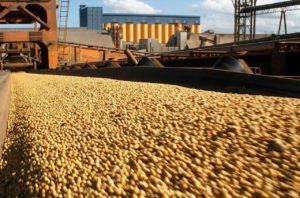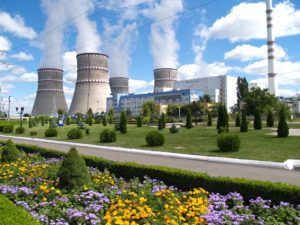
Chief of the National Police of Ukraine Ihor Klymenko has appointed Oleksandr Hrynchak as chief of the Cyber Police Department and Serhiy Kropyva as his deputy.
The respective decree was signed on October 19, a website of the National Police reported.
Prior police Colonel Hrynchak headed the section on combating crimes in information systems of the Economic Defense Department and worked as first deputy head of the Cyber Police Department.

Italy’s Ernest Airlines has opened an office in Kyiv in Podilsky district, an Interfax-Ukraine correspondent reported on Friday.
The company’s new office will also host a call center.
Along with this, the airline announced the opening of a new Ernest Airlines base at Sikorsky Kyiv airport (Zhuliany) in April 2020, the launch of five new routes between Ukraine and Italy: Kyiv-Venice, Kyiv-Bari, Kyiv-Trieste, Lviv-Bologna and Milan-Odesa.
Thanks to the new office in Ukraine, Ernest Airlines plans to strengthen and expand cooperation with Ukrainian travel agencies and tour operators.
As reported, Ernest Airlines plans to invest EUR 100 million in Ukraine in two years and to deploy two aircraft in Kyiv in 2020.

The group of companies Ristone Holdings has invested EUR 2 million in construction of a second phase of the oilseed crushing complex of Ristone Oil LLC (Dnipropetrovsk region), the group has reported on its Facebook page.
According to the report, the company concluded a contract with Germany’s Convex International GmbH for the supply of drying and cleaning equipment from Petkus (Germany), transport equipment from Riela (Germany), four main and two auxiliary grain silos with a capacity of 20,000 cubic meters from Symaga firm (Spain).
“This will allow us to keep the quality at the highest level and increase the volume of the daily processing rate by more than two times, while minimizing emissions of pollutants,” the group said.
The main activity of the complex is the deep processing of oilseeds. Currently, Ristone Oil produces sunflower oil, granulated meal, expanded cake, and fuel pellets from production waste.
In the future, it is envisaged the possibility of placing a line of hydration and drying of phosphatides in the oil press workshop with a warehouse for their storage and subsequent loading to vehicles.

Agromino has finalized a deal with the owner of Resilient and the key shareholder in Agromino – Mabon – on the acquisition of 100% of shares in Resilient for a consideration of 7.474 million newly issued shares in Agromino, equivalent to a value of EUR 12.935 million.
According to a posting on the website of Agromino, Mabon subscribed for the newly issued shares at a subscription price of SEK 18.6 per share and is now controlling approximately 74.3% of the outstanding shares and votes in Agromino.
The total number of Agromino’s shares after the deal grew from 17.421 million to 24.895 million.
The final valuation made by the company’s financial adviser, BDO, confirmed that the fair market value of Resilient corresponds to EUR 13.474 million.
Agromino said that Resilient will be consolidated as part of Agromino group from October 17, 2019.
Agromino (formerly Trigon Agri) was established in 2006. It specializes in grain and dairy production, agricultural trade.
In Ukraine, the company owns three silos with a capacity of 85,000 tonnes. Its land bank is about 47,000 hectares in Kharkiv, Mykolaiv, and Kirovohrad regions.

Electricity generation by all power plants of state-owned enterprise Energoatom in January-August 2019 decreased by 0.5% (by 323.1 million kWh) compared to the same period last year, to 60.729 billion kWh.
According to the press service of the company, the plan for production of electricity for the specified period in 2019 was exceeded by 0.9%.
The power plants of the state enterprise supplied 57.02 billion kWh of electricity to the market compared with 57.376 billion kWh in January-September 2018.
The share of Energoatom in the overall structure of electricity production in the country amounted to 53.2%, which is 0.5 percentage points more than January-September 2018.
The volume of capital investments for the nine months amounted to UAH 8.172 billion compared with UAH 8.1 billion for the same period a year earlier. The financing of capital investments amounted to UAH 10.739 billion compared with UAH 8.599 billion respectively.
Energoatom transferred UAH 9.55 billion to the budgets of all levels, insurance payments amounted to UAH 1.928 billion.
The installed capacity utilization factor of the company’s nuclear power plants amounted to 66.8%, which is 0.4 p.p. more than in January-September 2018.
In January-August, 10 violations were recorded in the operation of Ukrainian nuclear power plants (16 in the first nine months of 2018).
Energoatom is the operator of all four operating nuclear power plants in Ukraine. It operates 15 power units equipped with water-cooled power reactors with a total installed electric capacity of 13.835 GW.

Kyivsky cardboard paper mill (Obukhiv, Kyiv region), a leader in Ukraine’s pulp and paper industry in terms of production and sales, saw a 1.8% rise in production of goods in money terms in January-September 2019 year-over-year, to UAH 4.139 billion, according to the Ukrpapir association.
Corrugated packaging output fell by 1.7%, to 172.64 million square meters, retaining the second highest result among producers of corrugated packaging in Ukraine after Rubizhne cardboard packaging mill in Luhansk region (with Trypilsky packaging plant).
Production of cardboard decreased 4%, to 149,170 tonnes. Production of package cardboard alone grew by 2.7%, to 108,590 tonnes, while box cardboard output fell by 18.5%, to 40,580 tonnes.
Production of base paper (for sanitary products) stood at 61,140 tonnes, which is 3.8% up year-over-year. Toilet paper output rose by 4.3%, to 330.4 million rolls.
Kyivsky cardboard paper mill is one of the largest cardboard and paper producers in Europe. It employs almost 2,200 people. It sells produce to almost 700 companies in Ukraine, some CIS member states and the rest of the world.